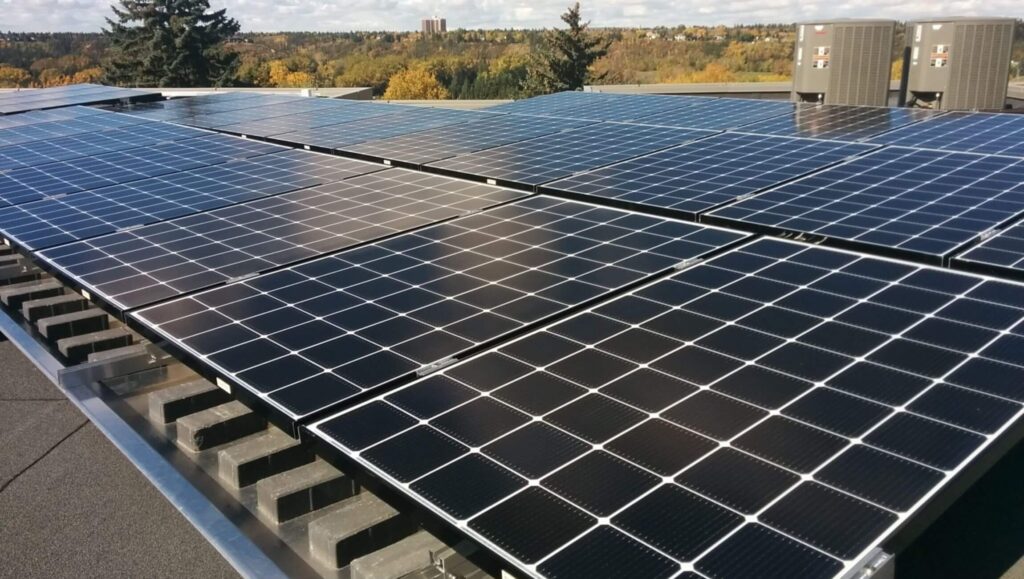Installing solar panels on the roof can have several effects, both positive and potentially negative.
Positive Effects:
- Renewable Energy Generation: Solar panels convert sunlight into electricity, providing a clean and renewable source of energy for your home or business. By harnessing solar energy, you can reduce your reliance on fossil fuels and contribute to a greener environment.
- Energy Cost Savings: Generating your electricity from solar panels can significantly reduce your electricity bills, especially if you generate more energy than you consume, allowing you to sell the excess electricity back to the grid (net metering).
- Environmental Benefits: Solar energy is a clean, emission-free source of power, which helps reduce greenhouse gas emissions and combat climate change.
- Energy Independence: By generating your electricity on-site, you become less dependent on utility companies, making you more resilient to potential power outages or price fluctuations.
- Increase in Property Value: Solar panels can increase the resale value of your property. Many homebuyers are attracted to energy-efficient homes with renewable energy installations.
- Government Incentives: In many countries, there are government incentives, tax credits, and rebates available to encourage the installation of solar panels, making them more financially attractive.
- Long-Term Investment: Solar panels have a long lifespan (typically 25-30 years or more), providing a stable and reliable source of energy for decades.
Negative Effects:
- Initial Cost: The upfront cost of installing solar panels can be significant, though it has decreased over the years. However, the long-term savings on energy bills often offset this initial investment.
- Roof Integrity: The installation process may require drilling or attaching hardware to the roof. While reputable installers take measures to ensure proper sealing and avoid roof damage, improper installation or poor maintenance could potentially cause leaks or structural issues.
- Aesthetics: Some people may not like the appearance of solar panels on their roofs, especially if the design of the system is not integrated with the overall architecture of the building.
- Shading: Depending on the positioning of your roof and any surrounding structures (e.g., trees, buildings), shading can reduce the efficiency of the solar panels and decrease overall energy production.
- Maintenance: Although solar panels generally require minimal maintenance, they still need periodic cleaning and inspection to ensure optimal performance.
- Limited Efficiency in Some Regions: Solar panels are most effective in areas with abundant sunlight. In regions with frequent cloudy days or limited sunlight, the energy production may be lower.
In summary, the installation of solar panels on the roof offers numerous benefits, including clean energy generation, cost savings, and environmental advantages. However, it’s essential to consider factors like initial costs, potential roof-related issues, and regional sunlight availability when deciding to install solar panels. Consulting with a reputable solar installer can help you assess your specific situation and make an informed decision.


